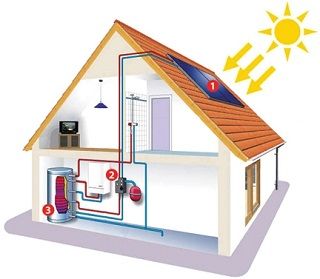From Guest Blogger Angie Freeman: Green Technology

Thoughtful Farming
Factory farm operations, the waste and chemicals associated with farming, can have major implications for the health of the air, water and soil around the farm. Many farms of all sizes are turning inward to reduce their impact and give back to their communities in the process. From more conservative use of pesticides to mixed planting practices and methane capture for energy generation, farms are becoming increasingly tech-centered and responsible.
Cleaner Mining
Just as farmers are working on being kinder to the land, some experimental mining technologies are aiming to make the increasingly maligned industry less wasteful and harmful. The two factors in cleaner mining are water conservation and chemical capture. Advanced mines are implementing water recycling and capture systems to take less water from the ground and put cleaner water back into the environment. Meanwhile, multiple methods of capturing greenhouse gases like methane and carbon dioxide reduce pollution and improve energy efficiency in fuel-hungry mining operations.
Paperless Business
This trend has been big for years, but for a lot of modern businesses, going paperless is less of an ideal today than a smart way to save money. Digital systems that allow for file storage, information sharing, and high-speed mobile computing have broken the corporate sector’s addiction to paper, toner and carbon-heavy mailing. This higher mobility for professionals has also increased the number of telecommuters, reducing the number of cars on the road during rush hour when emissions already spike.
Greener Cars
Smart Meters
Homes and businesses use a lot of electricity, but it’s not just old wiring or other dated systems that are to blame. Often it comes down to daily practices like leaving on lights in empty rooms, heating or cooling spaces when there’s nobody home and letting computers stay on all day, even when they’re not in use. That’s why more and more homes and businesses are starting to install smart meters that not only read how much energy the building is consuming, but also where and what are gobbling up the most watts. Using the info in smart meters, people can adjust their habits and be more efficient than ever.
New Gardening Trends
Not all tech has to be high-tech to be innovative. Green-thumbed citizens and civil servants around the world have been taking a fresh perspective on the usefulness of community gardens and city-wide participation in programs like composting. By allowing everyday people to contribute to nutrient-rich soil production, gardens and park maintenance, a lot of cities are getting literally and figuratively greener. These small, cheap gardens make clean air, fresh food and psychologically beneficial green spaces for everyone to enjoy. It’s inspiring to see all of the different ways the world is going green. These are just a few of the innovations currently promoting sustainability in business and beyond. There’s some new idea every day and all it takes is the will to adopt the best to make local environmental responsibility a global issue.
